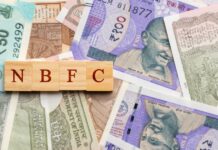The recent rejection of an application to produce a generic version of a patented drug shows India is following the rules, says Deepak Sriniwas of Lex Orbis
Under article 31 of the WTO TRIPS agreement, compulsory licence (CL) is one of the mechanisms for non-voluntary authorization to use a patent, including use by a government or third parties authorized by the government.

In many instances developed and developing as well as underdeveloped countries have invoked the CL provision to safeguard the interests of public. For example, US courts have granted CLs to Microsoft, Direct TV and Toyota. Italy’s competition authority has granted CLs for antibodies and a drug patented by Merck.
India’s first CL was granted to Natco Pharma to manufacture a generic version of Bayer’s cancer drug Nexavar. While the decision drew lot of opposition, Bayer is positioned to gain a 7% royalty from Natco – a high rate in a case of CL.
Recently, India’s controller general of patents (CG) has rejected the country’s second application for a CL, filed by Mumbai-based BDR Pharmaceuticals for a patent granted to Bristol-Myers Squibb (BMS) in 2006 for the drug dasatinib, used in the treatment of chronic myeloid leukaemia. In its application, BDR proposed to sell the drug at a price that worked out to ₹8,100 (US$130) a month per patient – much less than the cost of the BMS drug.
You must be a
subscribersubscribersubscribersubscriber
to read this content, please
subscribesubscribesubscribesubscribe
today.
For group subscribers, please click here to access.
Interested in group subscription? Please contact us.
你需要登录去解锁本文内容。欢迎注册账号。如果想阅读月刊所有文章,欢迎成为我们的订阅会员成为我们的订阅会员。
Deepak Sriniwas is the head of the patent prosecution practice at Lex Orbis IP Practice.



























